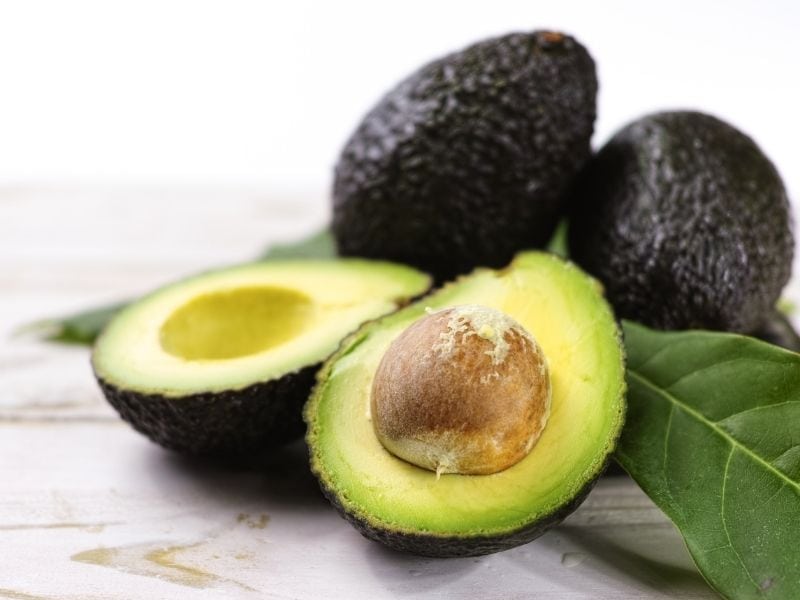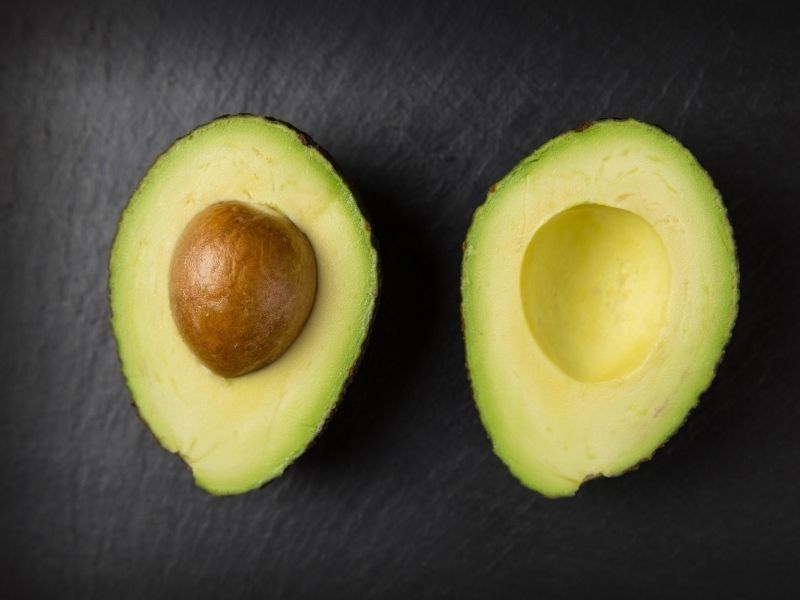Avocados are all the rage right now and offer numerous health benefits for people. Nutrient packed and tasty, an avocado might seem like a perfect treat for your dog, but is it really?
Can dogs eat avocado? When prepared properly, avocado is generally safe for canines. Dogs can eat avocado flesh in small amounts, as a healthy treat. While avocado contains the toxin persin, this substance is unlikely to be harmful to dogs. But, avocado pits, skins, and stems are a choking hazard and are the main danger.
Feeding avocado to dogs is always a subject of controversy and many people believe that this fruit is dangerous for dogs. Keep on reading to find out if an avocado is safe for dogs, and what are the risks and benefits of feeding this fruit to your dog.
Is Avocado Good for Dogs?
Avocados are extremely healthy for people and contain beneficial nutrients that can improve your dog’s overall health. This fruit is even included in several pet food formulas due to its nutritional value.
Lush and green, avocados contain vitamins K, C, E, and B6, as well as omega fatty acids and fiber. Avocados are also a source of other beneficial substances like antioxidants, folate, niacin, and potassium that may boost your dog’s immune system and help fight diseases.
This healthy fruit also contains healthy fats which can help lower cholesterol levels. However, feeding fatty foods to your dog can lead to obesity and pancreatitis.
Note that parts of the avocado such as pits, skins, and leaves can be dangerous for dogs. But, avocado flesh is completely healthy and safe, and you can feed it to your pooch if he likes the taste.
Benefits of Avocado for Dogs

Peeled and pitted avocados may provide certain health benefits for dogs, but only when fed moderately as treats. Keep in mind that all dogs are individuals and that avocado fruit might not sit well with your pooch.
Potential benefits of avocado for dogs are:
1. Healthy Fats
Avocados are very high in omega 3 & 6 fatty acids which are “good fats” that can help lower cholesterol levels and improve heart health (source). Fatty acids also have anti-inflammatory properties and can relieve joint pain and increase mobility in senior dogs.
Omega 3 & 6 fatty acids also support skin and coat health and can be extremely beneficial for dogs who have dandruff, or dry and itchy skin.
2. Avocado Supports Proper Digestion
Avocados are a good source of dietary fiber which is important for proper digestion and can also reduce the risk of obesity and diabetes. Fiber-rich fruits and vegetables like avocados add bulk to your dog’s diet and help him feel full faster.
3. Avocado Maintains Strong Bones
Naturally rich in vitamin K and manganese, avocado can help keep your dog’s bones strong and prevent fractures and bone diseases. Vitamin K also plays an important role in blood clotting and will prevent unnecessary blood loss.
4. Supports A Strong Immune System
Avocado also contains vitamin C, an antioxidant that is necessary for the development, repair, and growth of tissues. Vitamin C is involved in many functions and can help the immune system to stay strong and resilient to diseases.
5. Avocado Reduces Water Retention
This green fruit is also a good source of potassium which helps maintain healthy nerve function, regulates muscle contractions, and reduces water retention. By preventing the excess fluid buildup, potassium reduces sodium levels and lowers the risk of kidney stones.
Side Effect of Avocado for Dogs

While avocado flesh is safe for dogs, other parts of avocado can be dangerous since they can result in gastrointestinal blockage. Other potential risks of feeding your dog avocado are:
1. Choking Hazard
You might be surprised to learn that the avocado pit, in fact, presents the greatest danger to your dog. While the pit contains persin, its size and shape make it a potential choking hazard.
The pit can easily become lodged inside your dog’s esophagus, restricting the airflow and putting your dog at risk of choking. But even if your dog manages to swallow the pit, it can become lodged and cause a gastrointestinal blockage.
This potentially life-threatening condition usually requires surgery and immediate veterinary attention. If you suspect that your dog has indeed swallowed an avocado pit, take him to the vet right away.
2. Persin
Persin is a fungicidal toxin present in leaves, stems, seeds, and skins of an avocado plant. While dogs may get diarrhea or vomiting, persin is a toxic substance to birds, horses, cows, goats, and sheep (source).
Unripened avocados have higher levels of persin than ripe avocado fruit. So, if you feed your dog only ripe avocado, the chance of persin poisoning is highly unlikely.
If you have an avocado tree in your backyard, don’t allow your dog to munch on leaves, stems, bark, or any other part of the plant. In this case, it’s best to keep your dog away from the avocado tree all together than risk a potential stomach upset.
3. Fat
While avocado contains healthy fats, it does have high-fat content which can be problematic for some dogs. Large amounts of avocado can lead to pancreatitis, which can be a potentially life-threatening condition that requires immediate medical attention.
Furthermore, the high-fat content can cause gastrointestinal problems in some dogs, especially when fed in high quantities. To avoid bouts of diarrhea and vomiting give your dog avocado slowly and see how he reacts.
How Much Avocado Can a Dog Eat?
As with all other foods, you should talk with your vet before letting your dog eat an avocado. If your veterinarian gives the all-clear, he will also tell you how much avocado your dog can eat based on his individual nutritional needs.
If you decide to feed avocado to your pooch, treat this fruit as a treat and offer it moderately. Also, don’t forget to remove the pit, skins, and stems from the fruit before serving it to your dog.
How to Feed Avocado to Your Dog?
There are many different ways you can feed avocado to your dog, just make sure to remove all potential dangers such as pits and skins first. If possible, choose ripe and organic avocados that haven’t been treated with harmful chemicals and pesticides.
Popular ways to feed avocado to dogs are:
- Cut up an avocado in slices and offer it fresh to your dog
- Mash a fresh avocado and mix it with dog food
- Make homemade dog treats using avocado, peanut butter, and oats
Conclusion
Avocado is perfectly safe for dogs and can offer many health benefits when fed in small amounts. While the toxin persin is present in avocado leaves, seeds, skins, and fruit, it’s unlikely to be harmful to dogs.
To take advantage of everything good avocado has to offer to your dog, serve it as an occasional healthy treat. And to avoid all potential problems, keep your dog away from avocado trees and don’t allow him to eat avocado leaves, pits, or skins.
Related Articles:


0 Comments